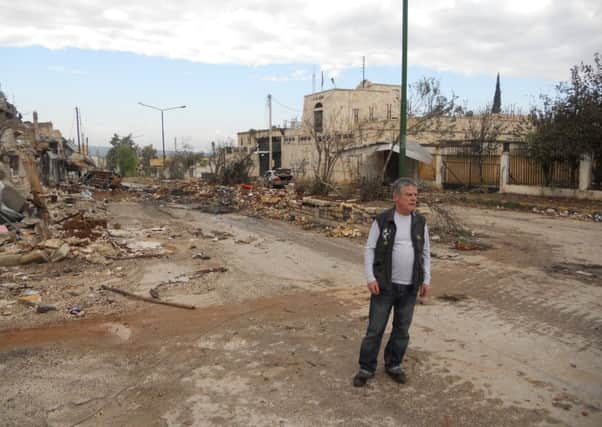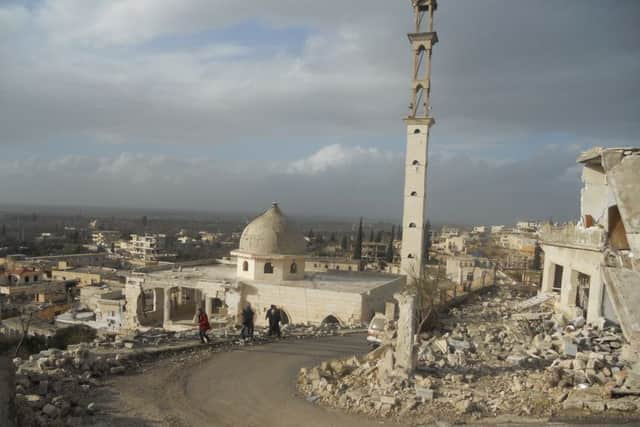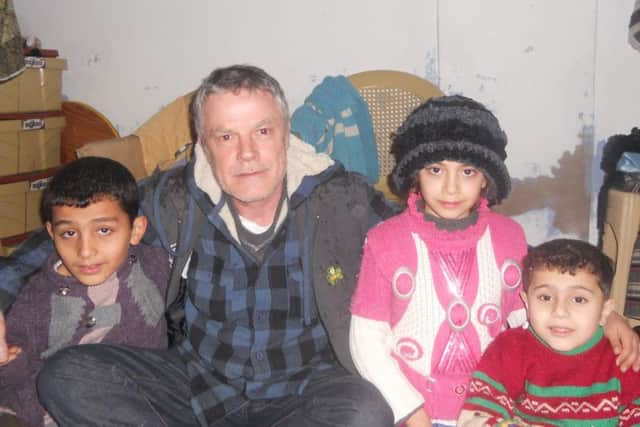David Adams: For much of my time in Syria I felt like I was on a World War II film set


The town in Idlib Governorate where we set up base was swarming with members of the opposition Free Syrian Army (FSA).
The FSA was there in numbers to try to flush out a detachment of government troops holed up in an ancient fort that overlooks the town.
Advertisement
Hide AdAdvertisement
Hide AdDuring daylight hours, gun battles would often erupt between the opposing forces, and this was not the only danger. Aerial and mortar bombardments of the town were regular occurrences, and snipers at the fort meant walking in certain streets was taking a gamble with your life.


Strange as it might seem, I and the rest of the GOAL team always felt relatively safe. The FSA didn’t bother us, and local people were only too glad to give us whatever help and advice we needed.
I have worked in many countries with GOAL, and I have never come across a more welcoming, hospitable and generous people than those of Syria. Nor have I ever encountered a more highly-educated one.
All of northern Idlib was without electricity or water supplies. The local sub-stations, as with the sewage plants and communal bakeries, had long ago been bombed to rubble by government jets. Between gunfire and explosions, and the destruction all around me, I sometimes felt as though I’d been parachuted on to the set of a World War Two movie.
Advertisement
Hide AdAdvertisement
Hide AdOur base in an abandoned house was the height of luxury in comparison to what was being endured by hundreds of families who were camped in the countryside around the town. They had fled their homes in the south of the country to escape even worse conflict. Living in abandoned buildings, or on the open ground in makeshift shelters and tents, most families had no money, little food or water, and not much more than the clothes they stood up in. All of this in the dead of winter. No wonder there were so many sick children.


I remember thinking that this situation can’t possibly be allowed get any worse; surely the international community will intervene to put an end to this slaughter.
How wrong can you be?
The world didn’t intervene. It continued to stand by like a barely-interested spectator and, predictably, the vacuum was filled by some of the most barbaric groups imaginable. October 2012 was peaceful in comparison to today.
The world only took notice when the swell of refugees from Syria finally burst on to Europe’s shores. Is it any wonder Syrians are fleeing their country? Are there any amongst us who, in similar circumstances, wouldn’t do the same?
Advertisement
Hide AdAdvertisement
Hide Ad

Peace talks are due to begin today in Geneva, to try to secure a ceasefire in Syria and an increase in the delivery of humanitarian aid. I have some experience in this regard (having been involved in the negotiations that led to the Belfast Agreement) and the prospects for a meaningful ceasefire are not good. Of most concern is the number of armed groups not involved in the talks, and the havoc they will continue to wreak, ceasefire or not.
The talks are not a wasted exercise. They probably represent the first step on what will be a long and tortuous road to peace and a representative government in Syria. But it is a journey that will be littered with the bodies of countless more innocents, and made all the more difficult by not being embarked upon years ago.
GOAL will continue calling for sieges of towns and cities to be lifted, and for all parties to the conflict to allow the safe delivery of aid right across Syria.
It’s the least the various combatants can do for the people of Syria, on whose behalf each of them claims to be fighting.
Advertisement
Hide AdAdvertisement
Hide Ad

• David Adams works for the Dublin-based agency GOAL, which is delivering aid to more than a million people in the north of the country.The former loyalist worked there from October 2012 to August 2013. David helped negotiate the Belfast Agreement, but is no longer involved in politics